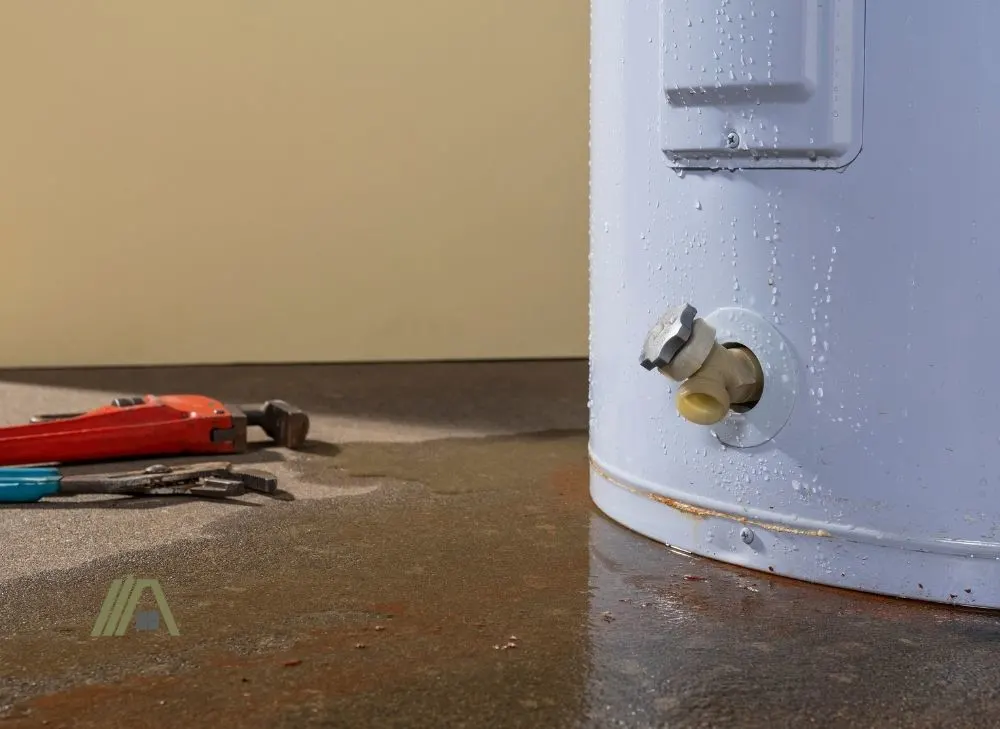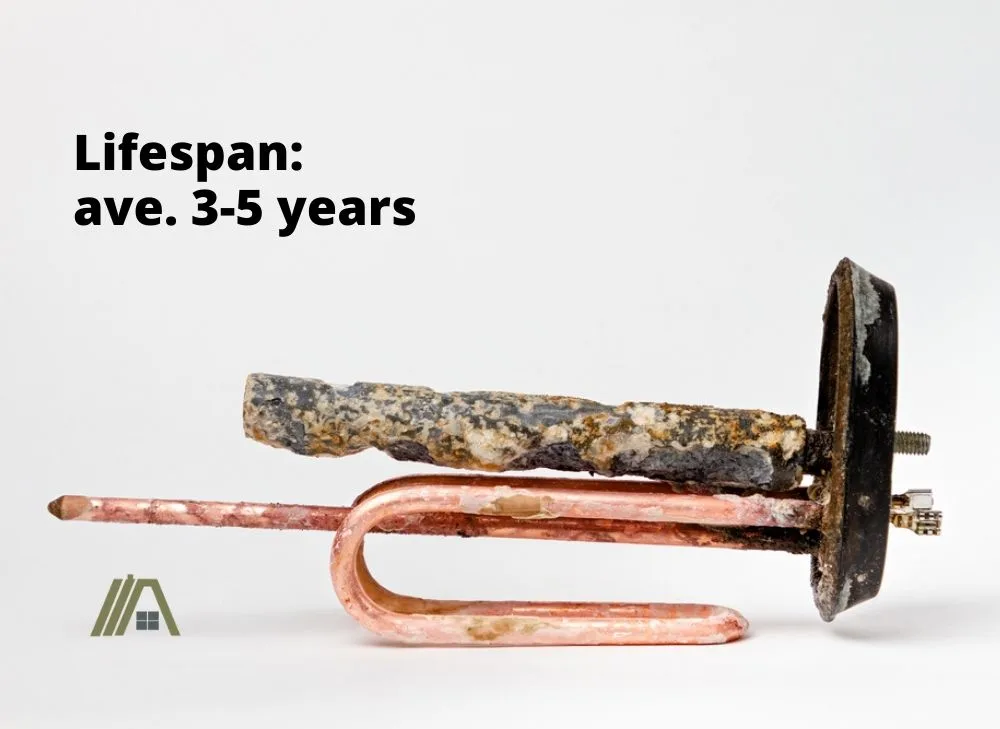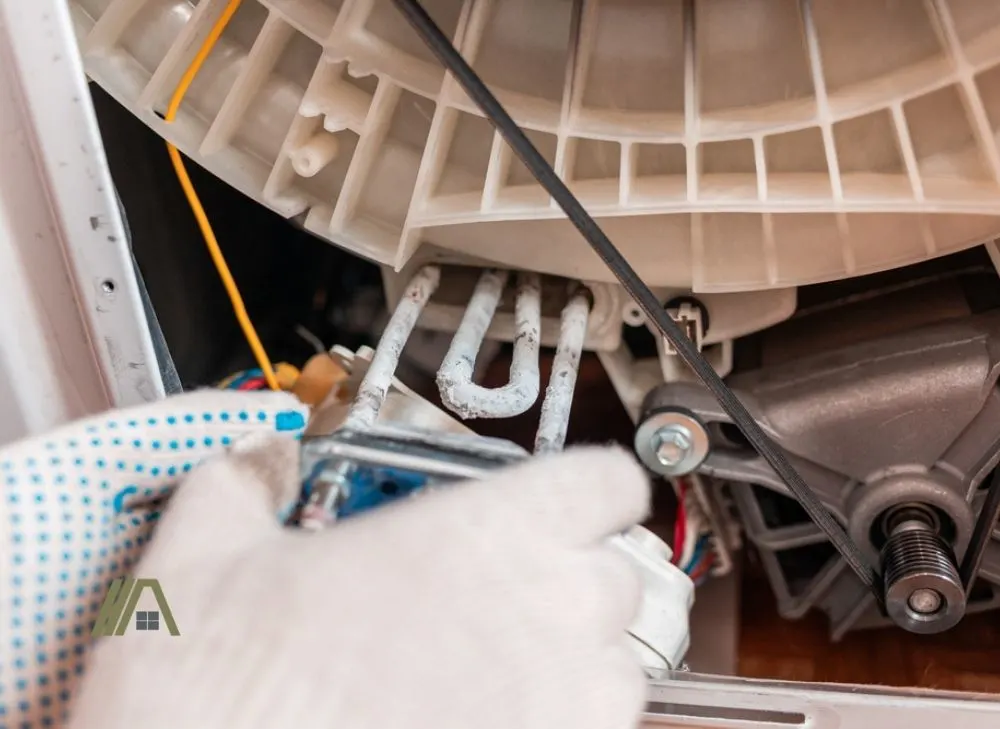Anode rods should definitely be on your list of home maintenance tasks and their replacement is not something you want to delay. Not only will delayed replacement put your tank at risk of rusting, but even the removal of the anode rod can become more difficult as the rod’s corrosion may cause it to seize up or break off.
This article will cover all the basics of anode rod replacement and should answer any similar questions you’ve been having. Good news—anode rod care is actually relatively simple.

On average, sacrificial anode rods require replacement every 3-5 years. Anode rods used for hard or artificially softened water may require more frequent replacement. Powered anode rods are unlikely to need replacement during the life of the water heater unless they are damaged in some way.
Sacrificial Rods Shall Be Replaced Before Depleted
Sacrificial anode rods are named for their method of protecting your tank, which involves attracting corrosive elements to themselves and deteriorating in place of your tank.
Once an anode rod fully corrodes, your tank will also begin to deteriorate. In order to prevent this, it is recommended to check your anode rod once a year, and replace it when 75% or more of it is depleted.
If you want to replace your anode rod yourself, the video below will provide you with a step-by-step guide.
You will need a breaker bar (amazon link) with a 1-1/16 deep socket and teflon tape (amazon link). Additional tools may be necessary, but will be dependent on your heater, and whether or not there are complications.
For example, if your anode rod is stuck or seized, you will likely need to use an impact wrench (amazon link).
Take a Detour
Should You Use Teflon Tape on Anode Rod
Can Anode Rod Be Removed With an Impact Wrench?
Signs You Need a New Anode Rod
While an anode rod isn’t strictly necessary for the functioning of your water heater, tank corrosion is no joke and you will either be shelling out money to replace the anode or the whole water heater—I know which one I’d choose!
Furthermore, there are several other reasons you’ll want to use anode rods, beyond just extending the life of your heater’s tank.
If you haven’t checked your anode rod recently but you have noticed any of the following signs, it’s possible your anode rod needs replacement.
- The first and most obvious would be if your tank has any leaking or visible rusting. This is a sign that it is deteriorating and does not have a functional anode.
- Rusty or brown-tinted water is another likely sign of rust inside the tank.

- If your water is smelly, this could be another indicator but be aware that smelly water could also just mean you need a different type of anode rod.
- If your pressure relief valve has been clogging up, or if you hear strange popping noises while your heater warms up, those are more warnings.
- Lastly, if your water isn’t getting as hot as it used to, it could be that rust, limescale, or sediment from wear has built up over the heating element.
If you want some more information, check out my article on How to Tell if an Anode Rod is Bad.
Things That Affect the Lifespan of Anode Rods
There are many factors that can contribute to your anodes lasting for a longer or shorter time than the average 3-5 years.
If you have a large family or use a lot of hot water, for example, your tank will process a lot more water, and your rod will deteriorate faster. After all, it will see more contact with the minerals and corrosive elements in each new quantity of water that enters your tank.
Very hard water with high mineral content will eat through your rod faster than naturally soft water.
However, if you use a water softener, which replaces hard minerals like magnesium and calcium with softer minerals like sodium, your anode can actually still wear down quickly. In fact, the addition of sodium can actually speed up corrosion.
Water quality can also affect your anode’s lifespan. Sulfur, which will most frequently be found in well water, can cause your anode to be eaten away at a faster rate.
Average Lifespan of Sacrificial Anode Rods
While sacrificial anode rods should all last around 3-5 years on average regardless of material, they may deteriorate quicker if used for the wrong type of water. We’ll briefly cover what material is best for what hardness of water below.

The size of the anode rod will not have a major effect on its lifespan if the correct size is used for your tank, as the amount of rod will likely be relatively proportional to the amount of water.
A too-small anode will have a shorter life compared to a properly sized anode, however, and it may be harder to keep up with the replacements, making premature tank corrosion more likely.
In Hard Water
For water to be considered hard, it must have a high content of minerals like calcium and magnesium.
These minerals can not only be corrosive to metal, but may cause a type of buildup called limescale to build up within the tank. Limescale can eat away at the material on which they form and cause corrosion to occur more quickly.
Aluminum rods (and zinc rods, which are aluminum-based) are best suited for hard water, as they are less reactive than magnesium rods and do not degrade as quickly.
In Softened Water
Naturally soft water is not necessarily highly corrosive, though it will still cause corrosion over time.
As briefly discussed before, softened water may contain less hard minerals and prevent limescale buildup, but softening water does not change other potentially corrosive water qualities. Further, the addition of sodium actually makes softened water extremely corrosive.
However, in either type of soft water, a magnesium rod is preferable. Magnesium’s high reactivity makes it more effective than an aluminum rod at preventing corrosion.
That said, they will also need replacement more frequently than aluminum rods due to this.
When to Replace the Powered Anode Rod?
While a powered anode rod shouldn’t need replacement for many years, that doesn’t necessarily mean it cannot fail like any other piece of equipment.

If it does fail, you’ll notice the same signs of anode rod failure as with a sacrificial rod. Look out for rust or leaks on the tank, and strange sounds, smells, or colors in your water.
Some powered rods are also designed with an indicator light that lets you know if your rod is functioning.
Average Lifespan of Powered Anode Rods
Since powered anode rods, unlike sacrificial anodes, are meant to last for a very long time, a good quality rod should last for your water heater’s entire lifespan.
It is likely that whatever type of anode rod you get will last a minimum of 6 years. That said, the most popular anode rod brand on the market right now is Corro-Protec (amazon link), which offers a 20-year warranty.
Things That Shorten Powered Rods’ Lifespan
Since powered rods are made from titanium, corrosion is not likely to be a relevant concern no matter what kind of water is in your home. However, there are some factors that can affect your powered rod’s lifespan.
The most likely issue, however, would be if you lived in an area prone to frequent power surges. As powered anodes rely on electricity, a surge does have potential to damage or break a powered anode.
If the idea of a powered anode rod has tickled your fancy, check out my ultimate guide for all you need to know about them.
Sources
https://atkinsoninspection.com/how-to-tell-if-anode-rod-is-bad/
https://www.duncanplumbingsolutions.com/anode-the-life-of-water-heater
https://garynsmith.net/smelly-water-one-of-10-signs-your-water-heater-anode-rod-could-need-changing/
https://performancemetals.com/pages/sacrificial-anodes-faqs
https://www.prattplumbing.net/how-a-water-softener-system-can-affect-your-water-heater/
https://sciencing.com/signs-need-change-anode-rod-8361770.html
https://www.servicechampions.net/blog/inspect-replace-anode-rod/
